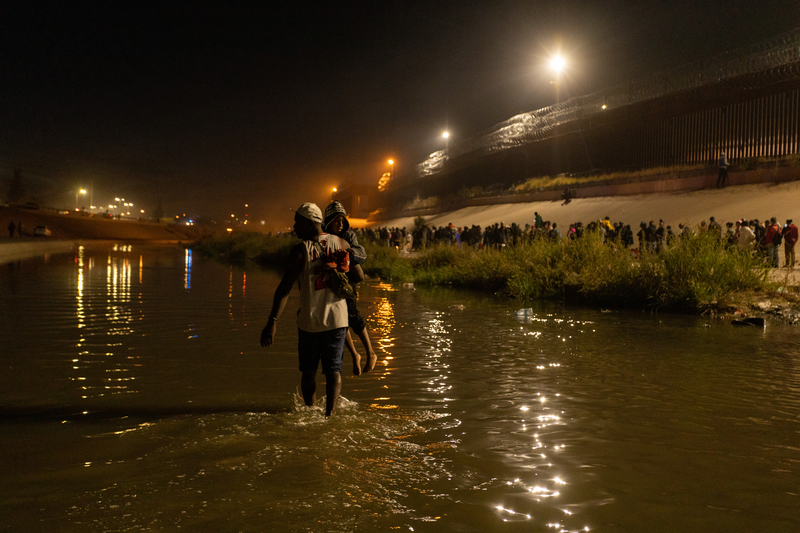New Jersey’s status as a sanctuary state under Governor Phil Murphy has spurred discussions among its residents. The percolating unease is not just a matter of national security but also ties to the cultural and religious fabric of the state.
The open border policies of the southern border are viewed by some as a potential risk, especially in light of the prevailing unrest in regions like Irsael and the West Bank.
The U.S. government has revealed they do not know how many individuals on the terror watch list have crossed into the country under the administration of President Joe Biden.
Each week, Border Patrol agents arrest murderers, criminals, and yes, those suspected with terrorist connections in the Middle East, but they don’t catch all of them.
As migrants are being shipped around the country, the risks that a terrorist in their midst slipped through is now a clear and present danger.
Especially for New Jersey.
New Jersey boasts a significant Jewish community, whose security could be perceived to be at risk if malevolent entities were to exploit the state’s sanctuary policies.
The unrest in Israel and the West Bank only highlights the potential threat of terrorism that could manifest on American soil, with states like New Jersey being potential targets due to their open-door stance.
The juxtaposition of open border policies and sanctuary state status creates a discourse filled with concern and calls for reassessment. Critics argue that the lenient border control could serve as a conduit for those with nefarious intentions, leveraging the existing turmoil in the Middle East as a backdrop for potential threats.
Proponents of the sanctuary policies, on the other hand, argue that they are a hallmark of America’s long-standing tradition of being a melting pot. They believe that the policies are reflective of the state’s commitment to inclusivity and diversity.
The discourse encapsulates a wide array of concerns, from the security of New Jersey’s Jewish community to the broader implications on national security.
The deliberation over New Jersey’s sanctuary policies amidst the backdrop of global unrest and open border apprehensions underscores the multifaceted nature of immigration and security policies, a narrative that is likely to evolve with the unfolding geopolitical landscape.
Lately, GOP officials have called for the termination of New Jersey’s sanctuary state status, but Governor Phil Murphy and Democrats have rejected those calls, labeling them as insensitive, anti-American and even Islamaphobic.
But, even Governor Phil Murphy has his limits. Last month, during the migrant crisis in New York City, the governor said New Jersey would not take in thousands of migrants, slated to be housed on federal property at the Atlantic City airport.
As the migrant crisis continues in America, it draws more attention to the real possibility that terrorists with ill-intent are using that crisis to gain entry, exploit the system and plan attacks on American soil.
